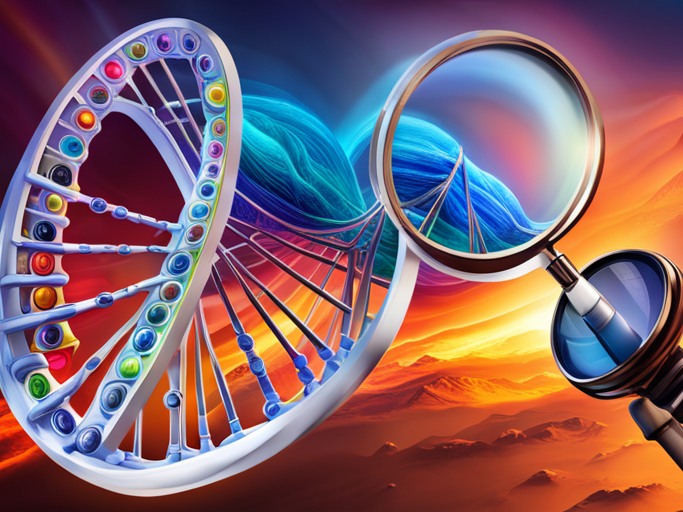
While you may know of CRI Genetics as a DNA testing service, the company was founded with the goal to continue deepening mankind's understanding of the human genome.
Today, we're excited and proud to share some of our latest findings on a fascinating aspect of DNA called ultra-conserved noncoding elements (UCNEs).
What the heck are UCNEs and why should I care?
UCNEs are small segments of DNA that have remained unchanged for over 300 million years across various animals, such as mammals and birds.
Unlike many important pieces of our DNA, UCNEs don't code for proteins. So, what makes them so significant?
A recent study by CRI Genetics scientists, published in the scientific journal Genes, has shed light on the importance of UCNEs and revealed some remarkable discoveries.
UCNEs play a crucial role in regulating gene expression, which means understanding them could potentially help us find new ways to treat diseases like cancer, neurological disorders, and developmental disorders... Someday.
Identifying and Understanding UCNEs
CRI Genetics' own Alexei Fedorov, along with his team of CRI scientists, identified UCNEs by searching for DNA sequences that are identical in different species, such as humans and mice. They also ensured these sequences didn't have any repetitive DNA segments or resemble other ultra-conserved elements.
Although UCNEs contain numerous tiny changes called mutations, only a handful of these have been linked to diseases or other biological conditions. This raised questions about why UCNEs have so many mutations yet remain unchanged across different species.
In the recent CRI study, Alexei and his team discovered that the unique composition of UCNEs might result in a distinctive DNA structure. They believe this special structure could be the key to the important biological roles UCNEs play in gene regulation.
Exploring the Mystery of UCNE Conservation
Alexei and his team found that each person has over 300 mutations within the 4,271 UCNEs present in human DNA. They also observed that some of these mutations are rare, while others are more common. This led them to question why UCNEs have so many mutations yet remain conserved across different species.
To explain this mystery, they proposed two hypotheses...
The first hypothesis suggests that natural selection might help maintain UCNE conservation. "Natural selection" is a process where traits that help us survive get passed on to our kids and those traits become more and more common over time. The fact that some UCNEs remain unchanged from generation to generation over millions of years COULD mean that they play a vital role in our survival.
The second hypothesis suggests that some unknown molecular process might be at play. This would mean something other than natural selection is happening at the tiniest levels within our cells that causes UCNEs to remain unchanged for so long and across so many different species.
Regardless of the reason, there's still much to learn about these remarkable ultra-conserved elements of our DNA.
Implications and Future Applications of the Findings
So, what is the coolest discovery from this recent study by CRI Genetics scientists? The discovery that UCNEs have a unique nucleotide pattern that could result in a special 3D shape.
This distinctive shape might enable UCNEs to regulate gene expression, which could explain their extraordinary conservation over millions of years. Gene expression is the process of turning certain genes "on" or "off" to control when and how they perform whatever function they're supposed to perform.
A better understanding of UCNEs could help find new ways to diagnose diseases, develop new drugs, and control gene expression in gene therapy. Studying UCNEs could also provide valuable insights into the evolution of gene regulation, which is essential for understanding the development of complex organisms like us.
We're proud to share some of OUR work in genetic research with you and we remain committed to unlocking the secrets of the human genome. Stay tuned for more exciting discoveries from CRI Genetics!